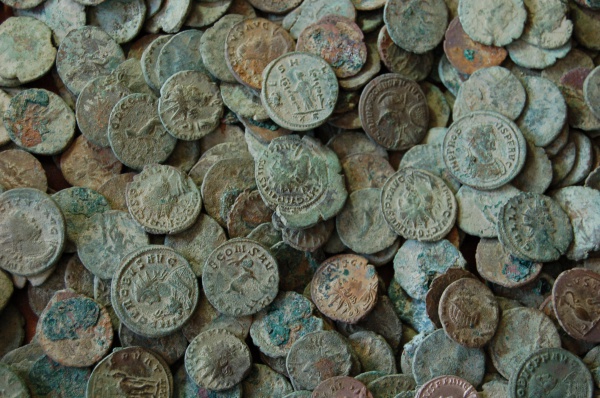Facts About Frome Hoard
The Frome Hoard is a remarkable archaeological discovery made in April 2010 by metal detector enthusiast Dave Crisp in Somerset, England. This treasure trove consists of 52,503 Roman coins dating from AD 253 to 305 and is one of the largest hoards ever found in Britain. The coins were stored in a ceramic pot and are primarily composed of debased silver or bronze. Notably, this hoard includes the largest collection of coins from the reign of Carausius, the first Roman Emperor to mint coins in Britain.
The discovery and excavation of the hoard required meticulous care. Archaeologists and specialists led the excavation, carefully removing the coins layer by layer from the pot to discern any chronological patterns in their deposition. Post-excavation, the coins underwent cleaning and stabilization to ensure their preservation.
The hoard features coins from various Roman emperors, with a significant number minted during Carausius' rule over the Britannic Empire. While hoards of this nature were often buried for safekeeping, it is suggested that this particular hoard might have been a communal votive offering to the gods, given the pot's size and fragility.
A coroner's inquest declared the coins as treasure, making them property of the Crown. However, the Museum of Somerset acquired the hoard for £320,250, thanks to funding from the National Heritage Memorial Fund. Since 2011, the hoard has been on permanent display at the Museum of Somerset.
The discovery captured public interest, with the hoard being exhibited at the British Museum and other venues. Public appeals and grants facilitated the hoard's display and acquisition by the museum. The Frome Hoard's historical significance, combined with the meticulous efforts in its excavation and conservation, make it a valuable contribution to our understanding of Roman Britain and a fascinating exhibit for the public.

 Ireland
Ireland